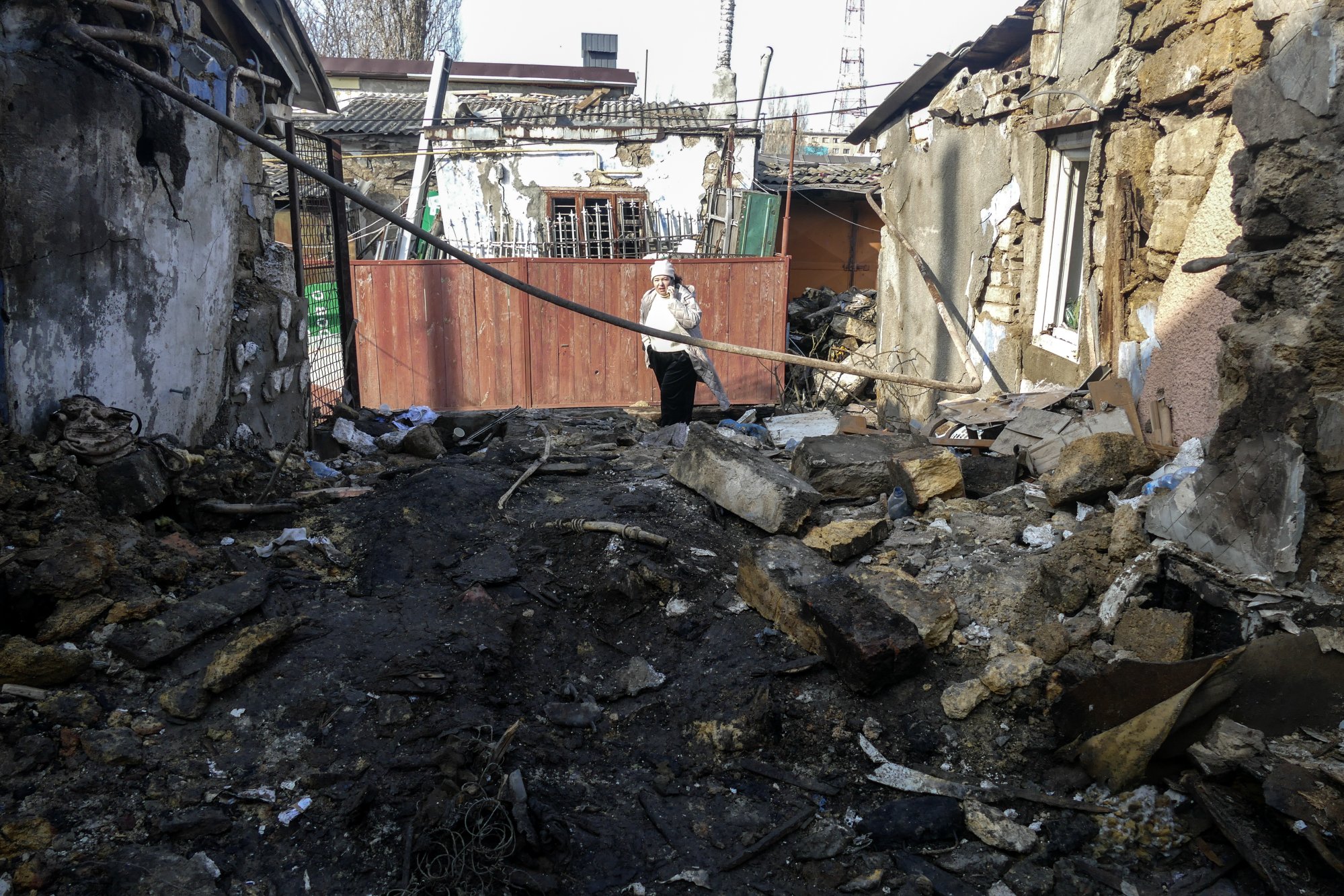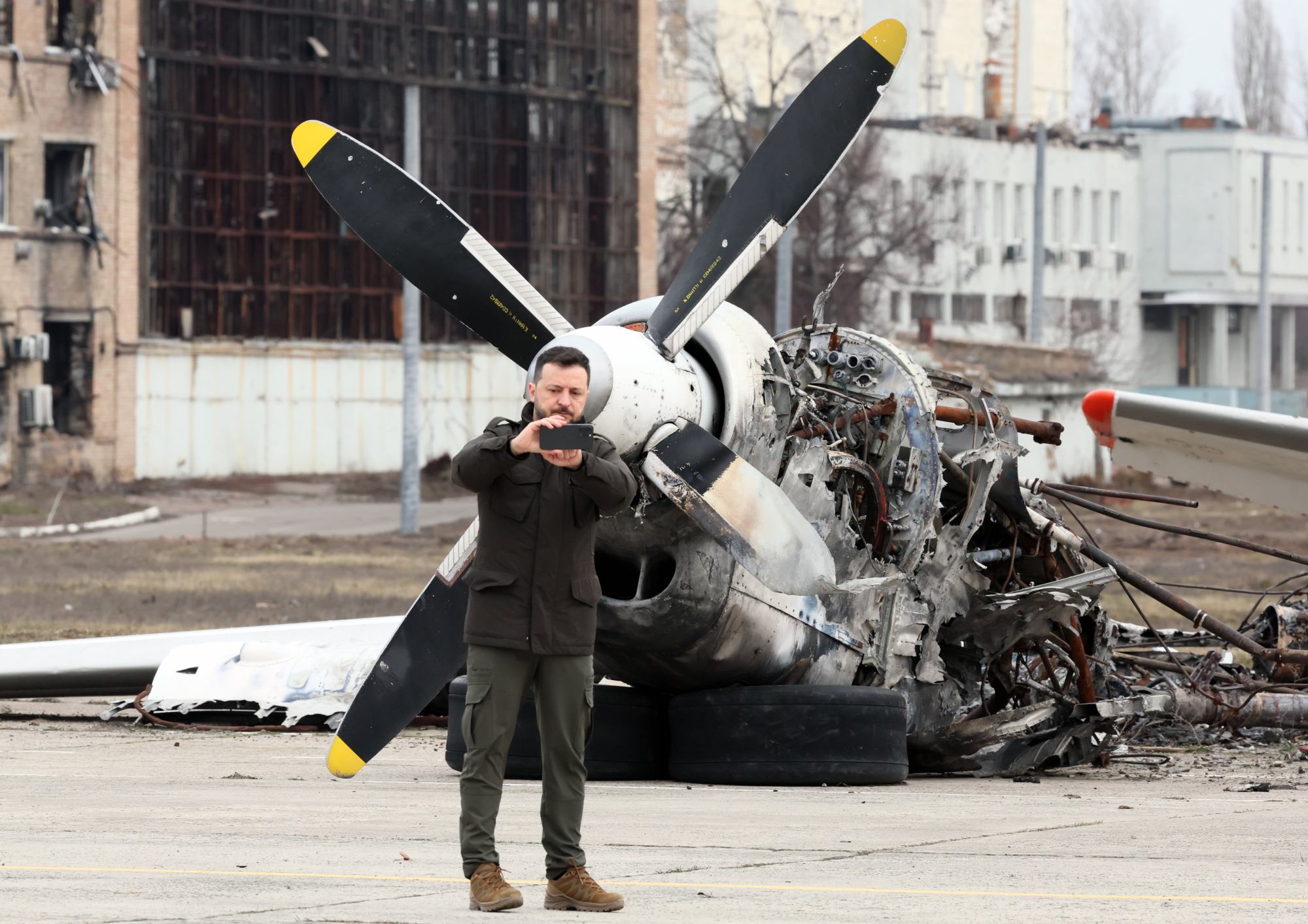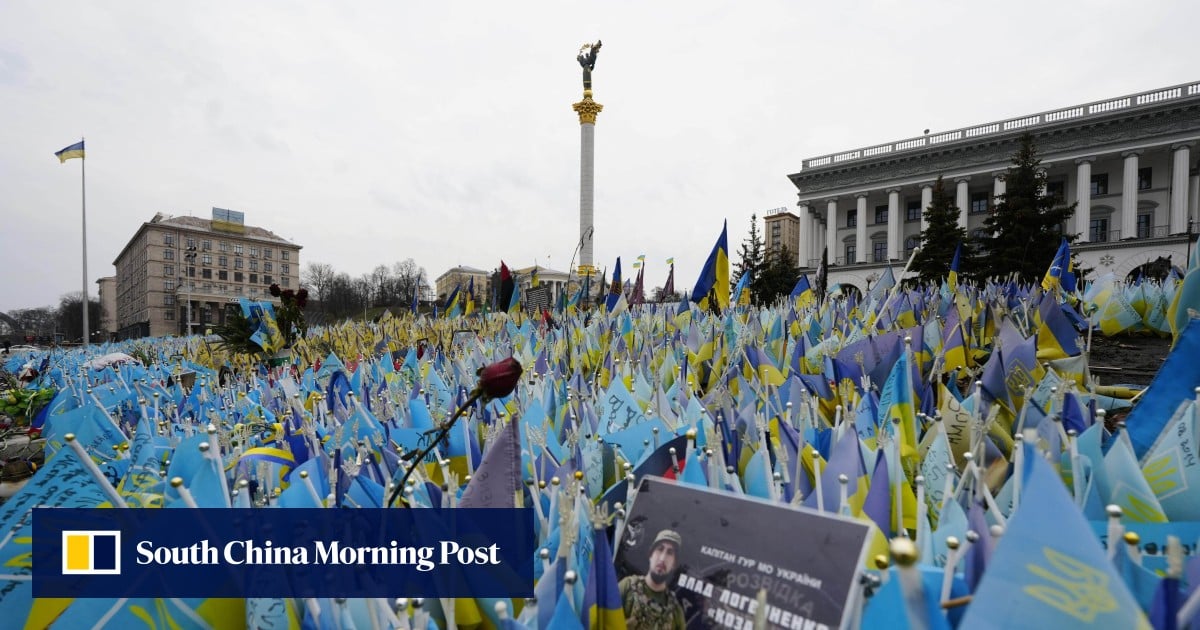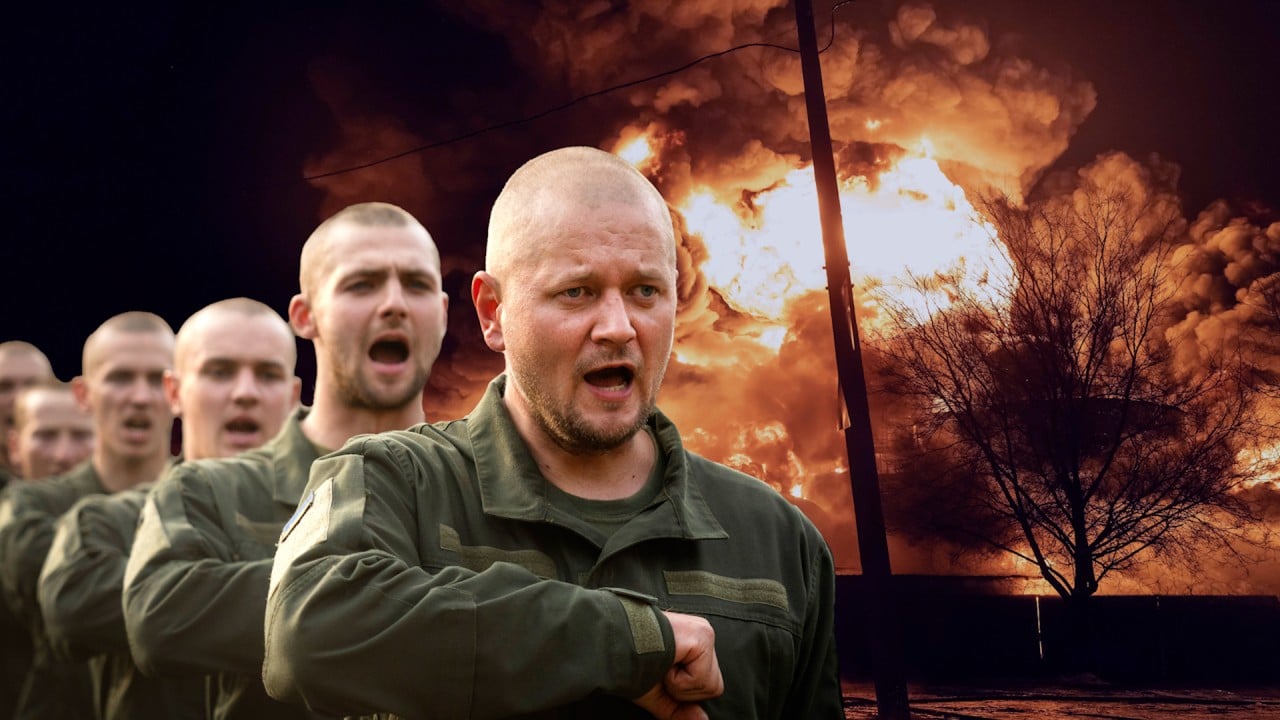“We are here today to say thanks to these men and women who on February 24 two years ago did not run away and instead fought,” Meloni said. “This place is a symbol of Moscow’s failures, a symbol of Ukrainian pride.”
Ukrainian President Volodymyr Zelensky embraced the Western leaders and delivered a televised speech against a backdrop of wrecked aircraft.
“Two years ago we met enemy troopers here with fire, and two years later, we are meeting our friends, our partners, here,” he said.
“Any normal person wants the war to end. But none of us will allow our Ukraine to end,” he added. “The word ‘independent’ will always stand next to the word ‘Ukraine’ in future history.”

Outside Kyiv, the war continued unabated.
Russian drones attacked the port of Odesa for a second night running, hitting a residential building, killing one person, the regional governor said. In Dnipro, a Russian drone hit an apartment building and a rescue operation uncovered two dead.
Meanwhile, a source in Kyiv said Ukrainian drones had caused a blaze at a Russian steel plant, which a Russian official identified as one in Lipetsk, some 400km (250 miles) from Ukraine, that is responsible for about 18 per cent of Russian output.
US aid still blocked
The West sees the invasion as an unjustified act of aggression that must be repelled and Italy, current chair of the G7, said it was vital to challenge perceptions that it was wearying of the conflict and Russia was winning.
US Senate passes Ukraine, Israel and Taiwan aid, but House likely to block
US Senate passes Ukraine, Israel and Taiwan aid, but House likely to block
When Russian tanks and infantry streamed across the border before dawn on February 24, 2022, Ukraine’s 40 million people defied expectations by slowing and stopping their advance.
But as the war enters its third year, setbacks in the east have left Ukraine’s army looking vulnerable.
Anniversary events were planned across Ukraine, including a service to commemorate those who died in Bucha, north of Kyiv – scene of some of the worst alleged war crimes of the conflict.

Ukraine said on Friday it had launched investigations into more than 122,000 suspected war crimes in the last two years, which Russia denies carrying out.
The initial shock of the invasion has gradually faded into familiarity and then fatigue, as the world watched initial Russian gains and a stunning Ukrainian counteroffensive in late 2022 slow into grinding trench warfare.
In scenes reminiscent of the battlefields of World War I, soldiers under heavy artillery fire are dying in their thousands, sometimes for a few kilometres of land.
Both sides have developed huge and sophisticated fleets of air and sea drones for surveillance and attack.
Russia, with a much bigger population to replenish the army’s ranks and a larger military budget, might favour a drawn-out war, although its costs have been huge as it seeks to navigate sanctions and a growing reliance on China.
As Ukraine war nears third year, Russia turns to China social media for support
As Ukraine war nears third year, Russia turns to China social media for support
Ukraine’s position
Ukraine’s position is more precarious. Villages, towns and cities have been razed, troops are exhausted, and Russian missiles and drone strikes rain down almost daily.
Russia this month registered its biggest victory in nine months, capturing the eastern town of Avdiivka and ending months of deadly urban combat.
Yet Zelensky remained defiant.
“I am convinced that victory awaits us,” he told diplomats in Kyiv this week in an emotional address. “In particular, thanks to unity and your support.”

A recent World Bank study said rebuilding Ukraine’s economy could cost nearly US$500 billion. Two million housing units have been damaged or destroyed, and nearly 6 million people remain abroad after fleeing the invasion.
In addition to seeking money and weaponry, Volodymyr Zelensky is promoting legislation allowing Ukraine to mobilise up to half a million more troops – a target some economists say could paralyse the economy.
Russia’s finances have so far proved resilient to unprecedented sanctions. While natural gas exports have slumped, oil sales have held up, thanks largely to Indian and Chinese buying, and the economy has been boosted by massive defence spending.


